How to Find the Best Wholesale Distributors
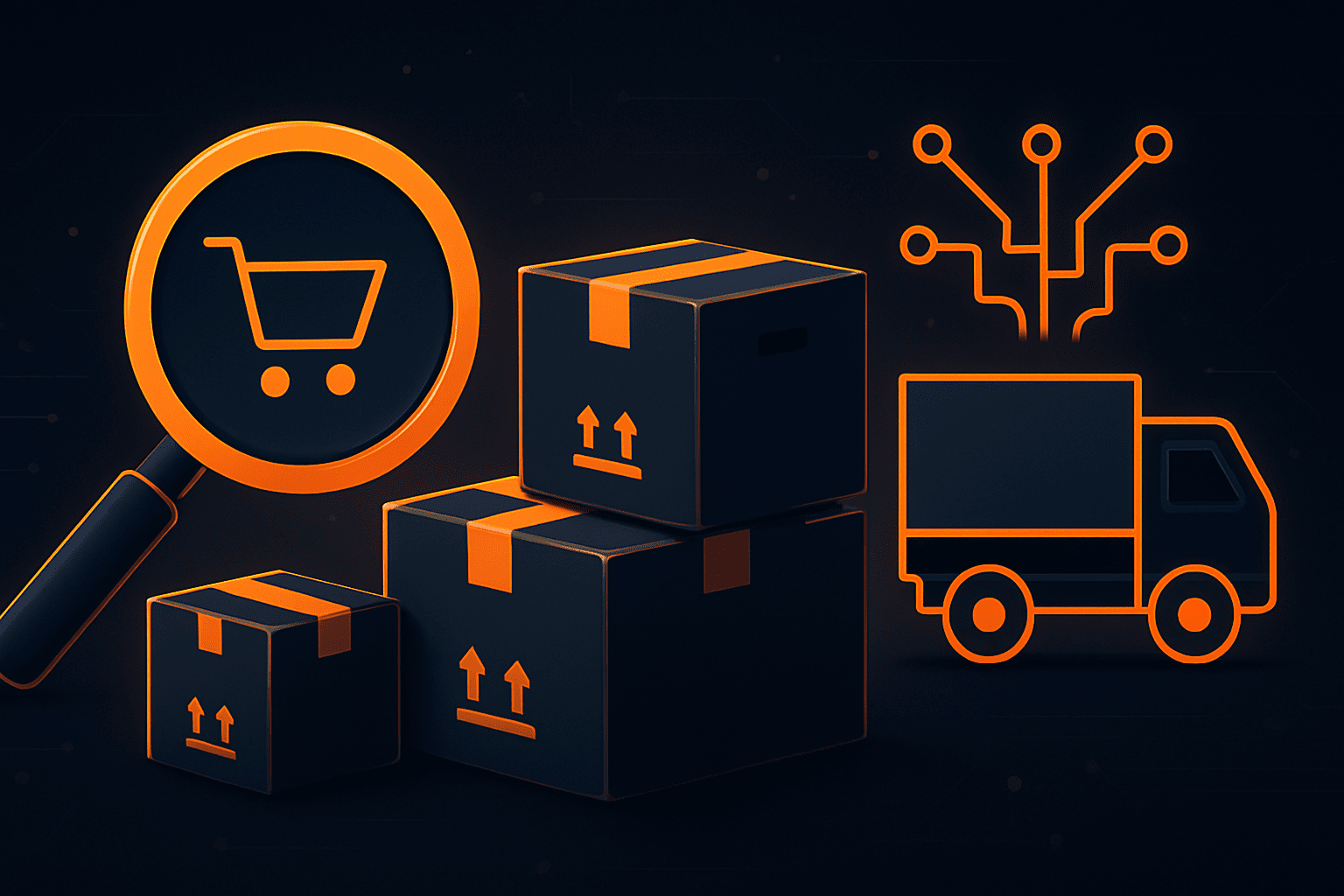

Key Takeaways:
They say one rotten apple spoils the whole barrel—and the same goes for your distributors.
A single unreliable partner can disrupt your entire operation, leading to costly delays, poor product quality, lost business, and reputational damage.
That’s why, in this article, we’ll explore seven effective strategies for identifying high-quality wholesale distributors who can support your long-term growth and boost your success.
Let’s begin.
A smart first step is to reach out directly to the product’s manufacturer and ask for a list of authorized or recommended distributors.
Since they work closely with their distribution network, they’re in the best position to guide you based on your location, industry, or market needs.
This is one of the most reliable ways to ensure you’re working with trusted, verified partners.
So, if you can track down the manufacturer of the product you’re interested in, send them a clear and concise email.
Be sure to include the following:
Important tip: Don’t try to outsmart the manufacturer.
They likely understand their products and market far better than you do.
Approaching them with humility and professionalism will help build trust. Arrogance will only damage the relationship.
Here’s some great advice from a Redditor who’s been there:
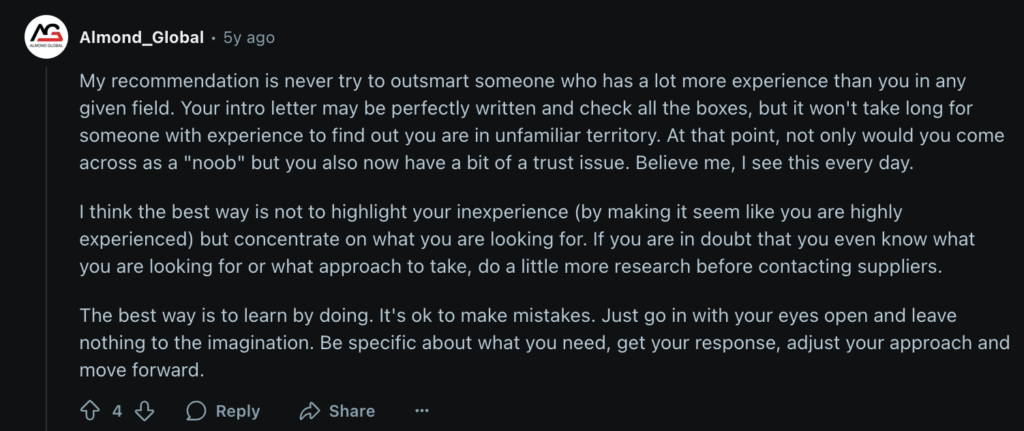
Source: Reddit
Just keep in mind, this method won’t always work.
Some manufacturers only collaborate with high-volume buyers or have exclusive distribution agreements, so if you’re just starting out, you might not hear back, or they may politely decline.
That’s okay.
There are plenty of other ways to find trustworthy wholesale distributors.
Joining various industry communities is another great option, as their members often share supplier leads, reviews, and sourcing tips that can be hard to find elsewhere.
But what exactly counts as an “industry community”?
Here are a few key places to explore:
These groups are typically filled with people who’ve been in your shoes: navigating supply chain challenges, hunting for reliable distributors, and trying to avoid costly mistakes.
As such, they provide access to unfiltered, real-world advice, and maybe even a few distributor leads that aren’t widely known.
That said, not all information shared in these communities is reliable.
Some leads may be outdated or biased, and many members won’t reveal their top suppliers:

Source: Reddit
If you feel like everybody’s sharing the same, generic tips, it may be because of this.
After all, staying ahead of the competition is the name of the game.
So while networking is valuable, treat it as a long-term strategy—a way to build relationships, gather market insights, and expand your sourcing toolkit—but never rely solely on it.
And be sure to verify every lead by checking credentials, financial health, and reputation before making any commitments.
Trade publications provide in-depth coverage of industry trends, news, and products, and often feature lists of distributors or articles that highlight their role in the supply chain.
Many also include advertisements with up-to-date contact information, enabling you to quickly and easily get in touch with reliable distributors.
With just one issue, you can walk away with the names of dozens of wholesalers or small manufacturers worth researching.
And there’s a trade publication for every industry.
Simply look up magazines relevant to your field, and you’ll often find wholesale distributors featured within the pages.
For example, if you’re seeking toy distributors, The Toy Book is an excellent choice.
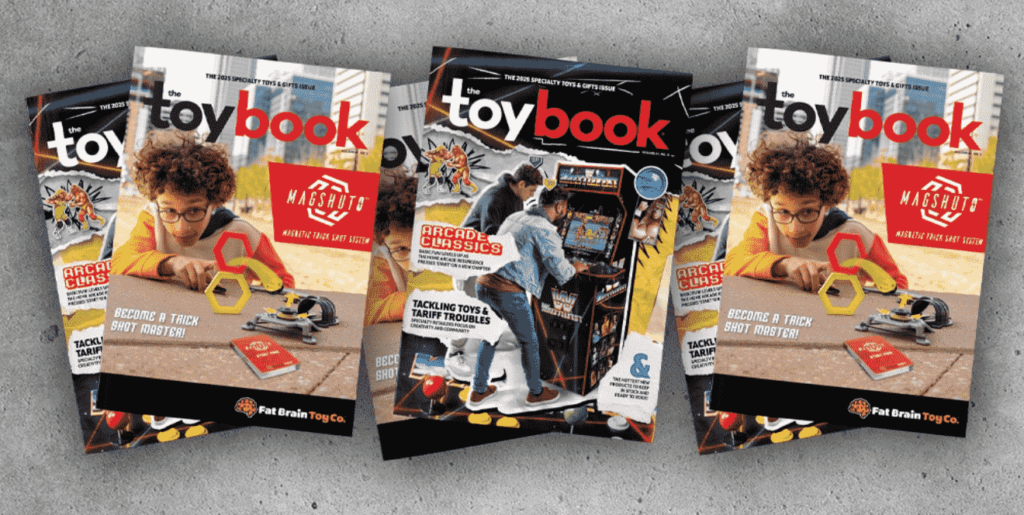
Source: The Toy Book
It’s packed with expert insights, product showcases, and exclusive features.
Of course, contact information for each wholesaler is included as well:

Source: The Toy Book
These publications are a valuable way to discover not just new distributors but also trending products, industry changes, upcoming trade shows, and more.
One quick heads-up: because these magazines can be ad-driven, they may spotlight sponsors more than the absolute best suppliers.
So use them as a strong starting point, but always cross-reference with other sources to get the full picture.
One of the most popular ways to find wholesale distributors is through online B2B marketplaces.
Some of the most widely used platforms include:
These platforms are designed specifically to connect buyers with wholesalers and manufacturers, providing access to hundreds of thousands of products.
They also streamline communication, provide payment protection, and enable buyer reviews to give you the best possible results.
Faire, for example, has become a particularly popular option.
It’s a modern wholesale marketplace that connects retailers with over 100,000 unique vendors and artisanal brands, offering a wide variety of products, from home décor to apparel and more.
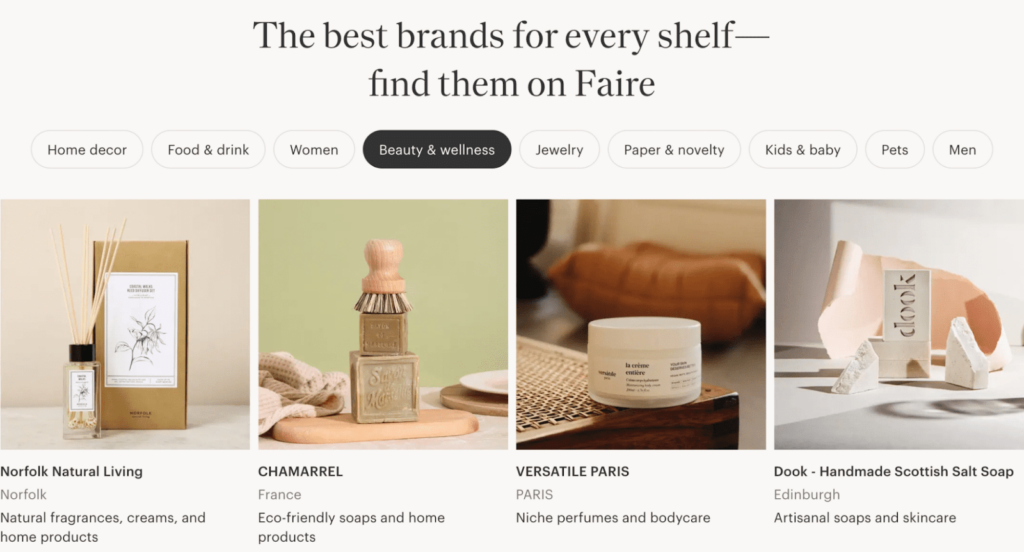
Source: Faire
You can also filter vendors by criteria such as women-owned, LGBTQ+-owned, organic, or “not on Amazon”, and more.
However, while these platforms offer many benefits, they’re not without risks.
Some may host unverified or low-quality sellers, which increases the chance of scams or poor-quality products.
Faire, too, has had some negative reviews that highlight this risk:
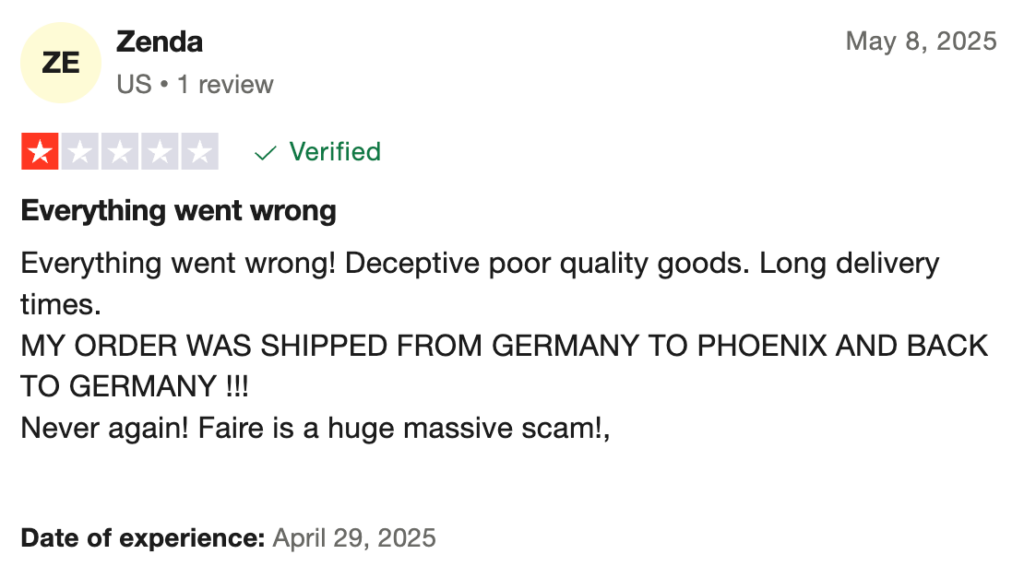
Source: Trustpilot
That’s why doing your homework is key here.
According to Shahzaib Ali, Senior VP of Business Development at Five Perks, an Amazon marketing agency for e-commerce brands, here are some key red flags to watch for:
Overall, online B2B marketplaces can be quite useful, as long as you know how to navigate them.
They’re convenient, fast, and give you access to a wide variety of wholesale distributors.
But success lies in the details. Take your time, vet potential candidates carefully, and never ignore those red flags.
You can use tools like ImportYeti, Panjiva, or ImportGenius to view import/export data and identify who is supplying products to your competitors.
Import records and trade data are typically sourced from customs and border protection filings that track the movement of goods across international borders.
These records provide valuable insights, such as:
| Exporter/Importer Information | Company names, contact details, and trade volume. |
| Product Details | Descriptions, classifications (HS codes), and product categories. |
| Trade Volume | Quantities and values of goods traded. |
| Trade Routes | Countries involved in the exchange, indicating import/export origins and destinations. |
This data uncovers real-world distribution chains and can lead you directly to top-performing wholesalers or manufacturers.
It reflects actual shipments, offering a more reliable view of a company’s activity.
Take ImportYeti as an example. It’s fast, intuitive, and incredibly helpful.
Just type in the name of your competitor, like so:
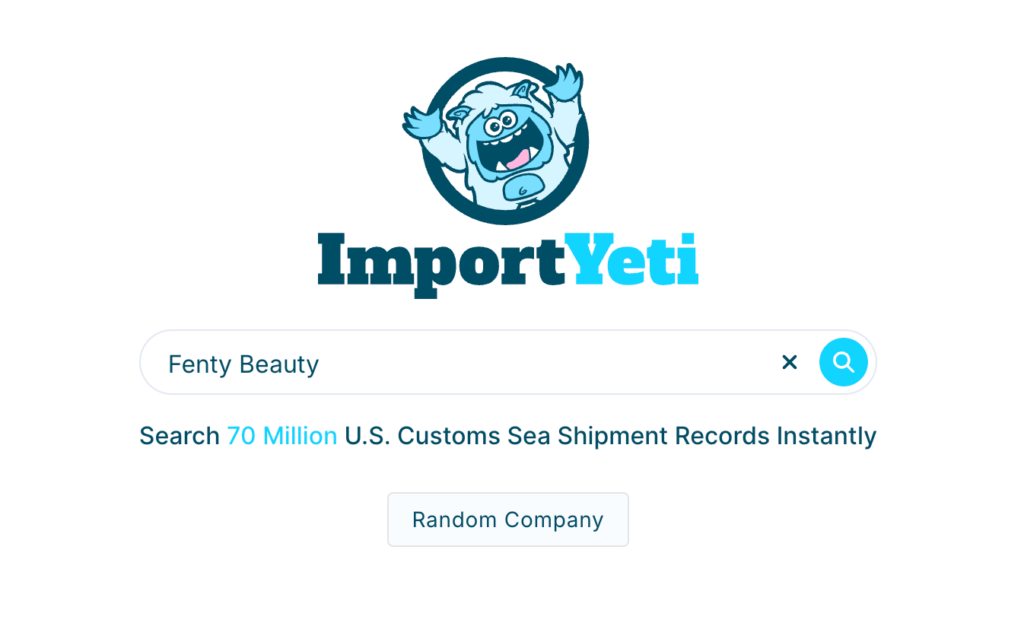
Source: ImportYeti
And you’ll get access to a user-friendly dashboard showing its key suppliers, total sea shipments over time, and more:
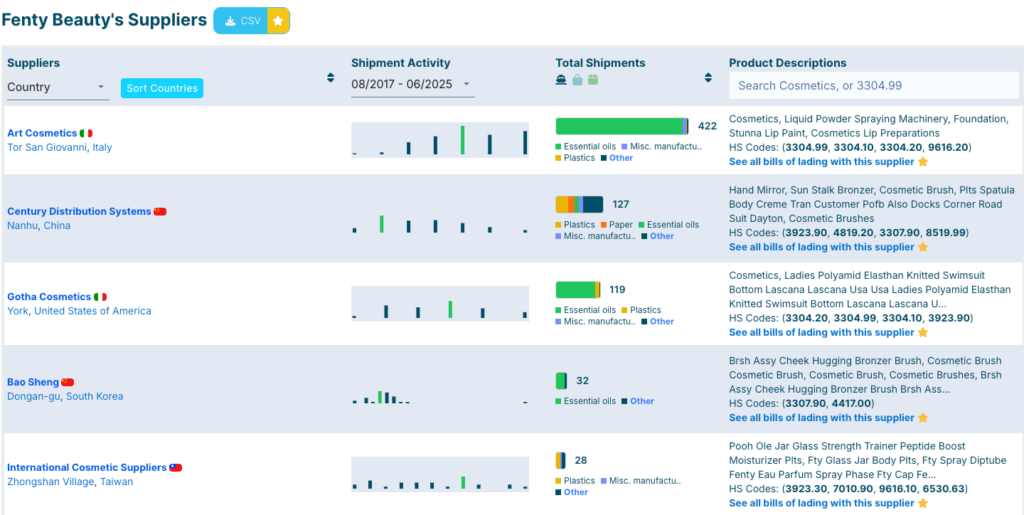
Source: ImportYeti
Of course, this method isn’t without its downsides.
Not every country shares trade data, and even in those that do, like the U.S., some companies may request their import records be masked for privacy.
In other words, you may not always see the complete picture and might miss some high-quality distributors, particularly the domestic ones.
Definitely check which regions and countries your trade data provider covers before investing in such services.
For instance, ImportYeti focuses exclusively on the US market, while some others, like Tendata, have much broader coverage:
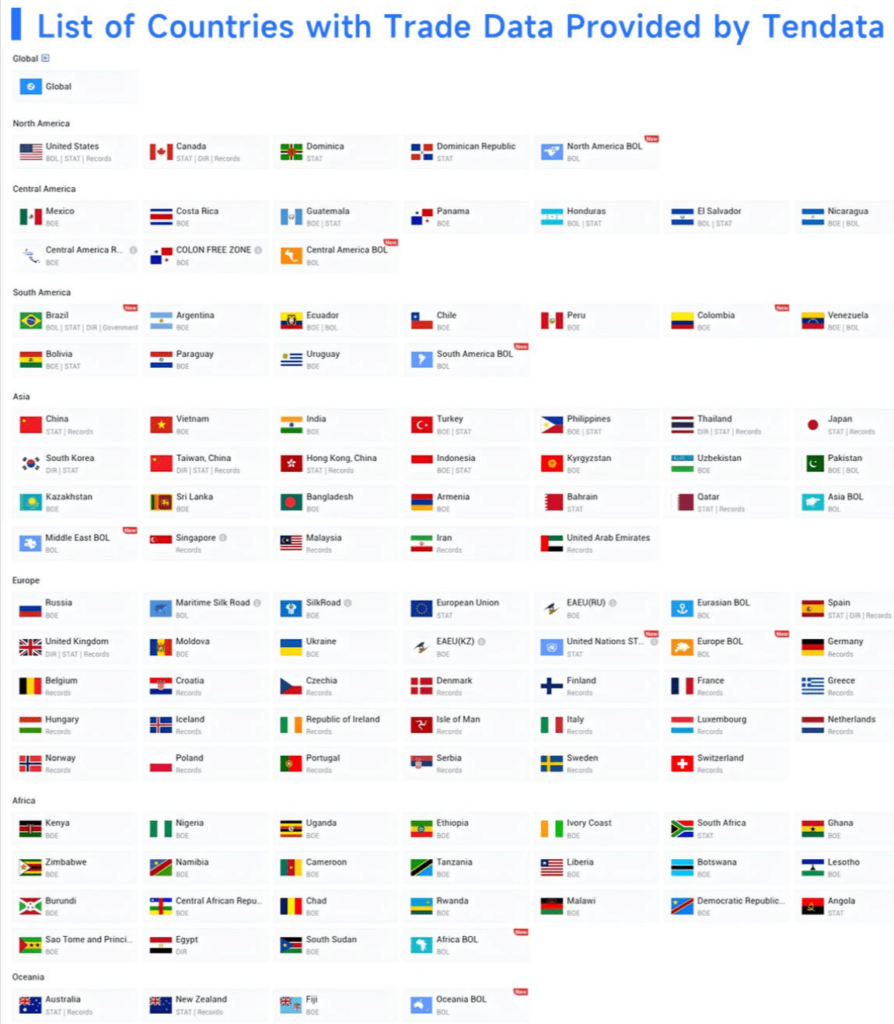
Source: Tendata
Still, when used wisely, trade data can help you outmaneuver your competition and quickly find high-performing distributors.
Just be sure to double-check your findings and combine them with other sources to make truly well-informed decisions.
If all the options we’ve mentioned so far seem like too much work, the good news is you don’t have to search for wholesale distributors on your own.
Hiring a sourcing agent can take a huge load off your plate.
These professionals typically offer local expertise, fluency in the local language, and strong negotiation skills, while also managing quality control and logistics on your behalf.
Here are some of the services provided by one such agency:
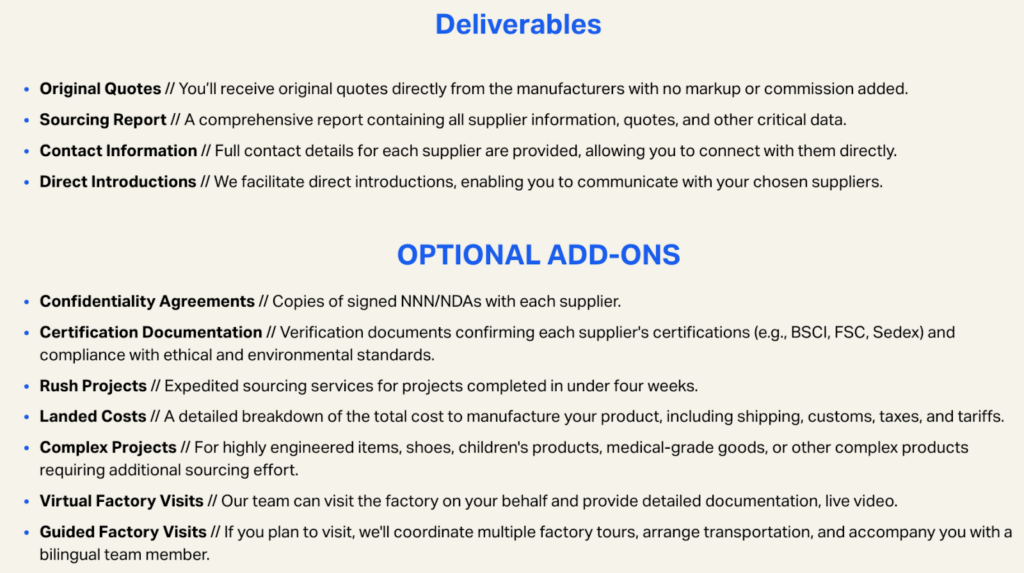
Source: Cosmo Sourcing
As you can see, they take care of the entire process, often securing better deals than you could on your own.
For example, one Redditor reported landing amazing prices with the help of an agent:

Source: Reddit
Still, be aware that some agents charge high commissions or work closely with preferred suppliers, which can lead to conflicts of interest or hidden markups.
It’s definitely not the right approach for everyone.
In fact, in that very same Reddit thread, some users shared negative experiences where agents caused more problems than they solved:

Source: Reddit
So, do your due diligence.
Check their credentials, read online reviews, and vet them thoroughly before committing.
A good agent can be a huge asset—especially when you’re dealing with time zone differences, language barriers, or cultural nuances—but only if they’re someone you can truly trust.
But what if we told you that you no longer need to rely on manual research or hit-or-miss sourcing agents to find wholesale distributors?
That’s right: no more wasting time on Google, online marketplaces, forums, magazines, or chasing down manufacturers.
Thanks to AI, all of this is officially a thing of the past.
Take Veridion, for example.
This AI-powered supplier sourcing platform drastically slashes research time while helping you discover more distributors that precisely match your needs, anywhere in the world.
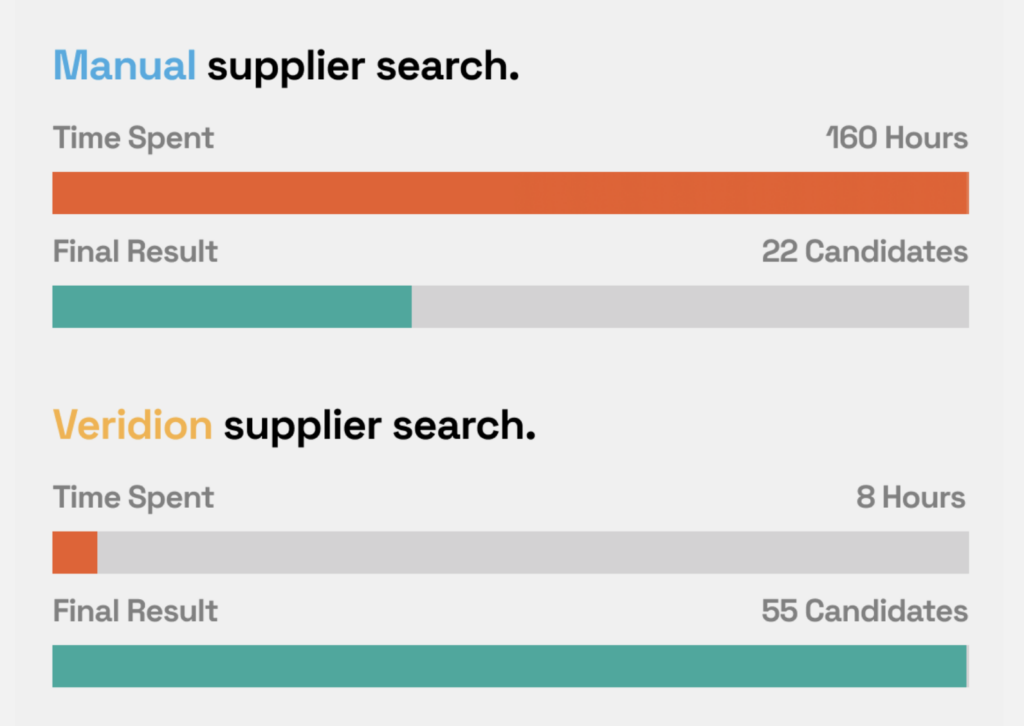
Source: Veridion
Veridion scans billions of websites and processes petabytes of data each week, giving you access to information on over 120 million companies across 200+ locations.
Using our Scout search engine, simply enter your criteria using natural language and get immediate, tailored results.

Source: Veridion
Whether you’re looking for vendors with specific production capacity, lead times, certifications, or ESG practices, Veridion will find them for you.
We’re especially proud of our deep coverage of geographical areas that other data providers are not yet covering well, such as Asia or the Middle East.
This means that, with Veridion, you’re never missing out on global opportunities.
So, why settle for time-consuming, cumbersome distributor discovery methods that rarely deliver optimal results?
With Veridion, the entire process becomes so much easier, faster, and more data-driven.
Ultimately, each of these strategies comes with its own set of advantages and drawbacks.
However, they all share one key requirement: thorough due diligence.
Even the most promising lead can quickly become a costly mistake if you fail to verify credentials, check reviews, confirm quality standards, and understand exactly who you’re dealing with.
So whatever route you take, take it seriously.
A little extra effort up front can save you a lot of trouble later on.